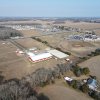Judge upholds Dewey Beach Board of Adjustment
Neighbors fighting to overrule a decision that allows a house to be raised higher than is required by town code were dealt a blow June 26 when a Sussex County Superior Court judge upheld a decision by Dewey Beach Board of Adjustment.
The ruling, by Judge E. Scott Bradley, comes eight months after nine neighbors from Read Avenue and Vista and Hayden roads filed a suit in January 2014 against the board for allowing Read Avenue property owner Walter Bruhl to elevate his home above what town officials said they would allow to protect the home against future flood damage.
Bruhl's home sustained substantial damage from Superstorm Sandy in October 2012, and the Bruhls wanted to elevate their home to a height that would protect the structure from future damage.
In November 2013, the board approved 8 feet above grade – more than 3 feet higher than the 8 feet above base flood elevation as described in town code and Federal Emergency Management Agency requirements.
Bradley said the three arguments made by the residents opposing the board's decision didn't hold up.
The residents argued the board committed reversible error when it permitted the Bruhls to raise their beach house eight feet above grade without first obtaining a variance.
Bradley said this argument fails to recognize the issue actually before the court.
Dewey Beach Building Official Bill Mears issued a building permit authorizing the Bruhls to raise the house eight feet above grade, wrote Bradley.
“The residents never filed an appeal of that decision. Thus, the issue of whether the Bruhls could properly raise their beach house eight feet above grade without first obtaining a variance was not before the board,” reads the decision.
The residents also argued the board offered no factual basis to support its conclusion that raising the house results in essentially the same configuration as when it was on the ground.
Bradley said the problem is that Mears found raising the house does constitute a reconfiguration of it, but he offered no explanation of how he reached that conclusion.
"The board rightly struggled with the notion that raising a house five feet above grade is 'essentially the same configuration' while raising it eight feet above grade is not," wrote Bradley. “The problem is that the building official did not, as I noted previously, explain how he reached the conclusion that merely raising a house constitutes a reconfiguration of it. It was the building official who offered no rationale or facts supporting his conclusion, not the board."
The neighbors' third argument was that the board violated the neighbors' rights by not allowing the neighbors to comment at the public hearing.
Bradley said this argument fails to appreciate the nature of the issue. It was an appeal of Mears' interpretation of town code.
“While this may well have been appropriate for a hearing on an application for a variance, which the board never considered in this case, it had nothing to do with the building official's interpretation of [the code].”
The neighbors appealed judge's decision to the Delaware Supreme Court July 24.
Dave Ferry, attorney for the neighbors, said his clients are simply waiting for a chance to be heard. He said they didn't have a chance to testify at the initial board of adjustment meeting, and they were hoping Superior Court would have sent it back to the board for another hearing.
“Since Superior Court didn't agree, we've had to take it to the Supreme Court,” he said.
Michael Hoffman, attorney for the board, said he wasn't surprised by the neighbors' appeal.
“It sounds obvious, but I always expect an appeal until the appeal period expires. You just never know,” he said.
Hoffman said preliminary administrative matters are currently in progress related to this appeal.
Chris Flood has been working for the Cape Gazette since early 2014. He currently covers Rehoboth Beach and Henlopen Acres, but has also covered Dewey Beach and the state government. He covers environmental stories, business stories and random stories on subjects he finds interesting, and he also writes a column called Choppin’ Wood that runs every other week. He’s a graduate of the University of Maine and the Landing School of Boat Building & Design.

























































